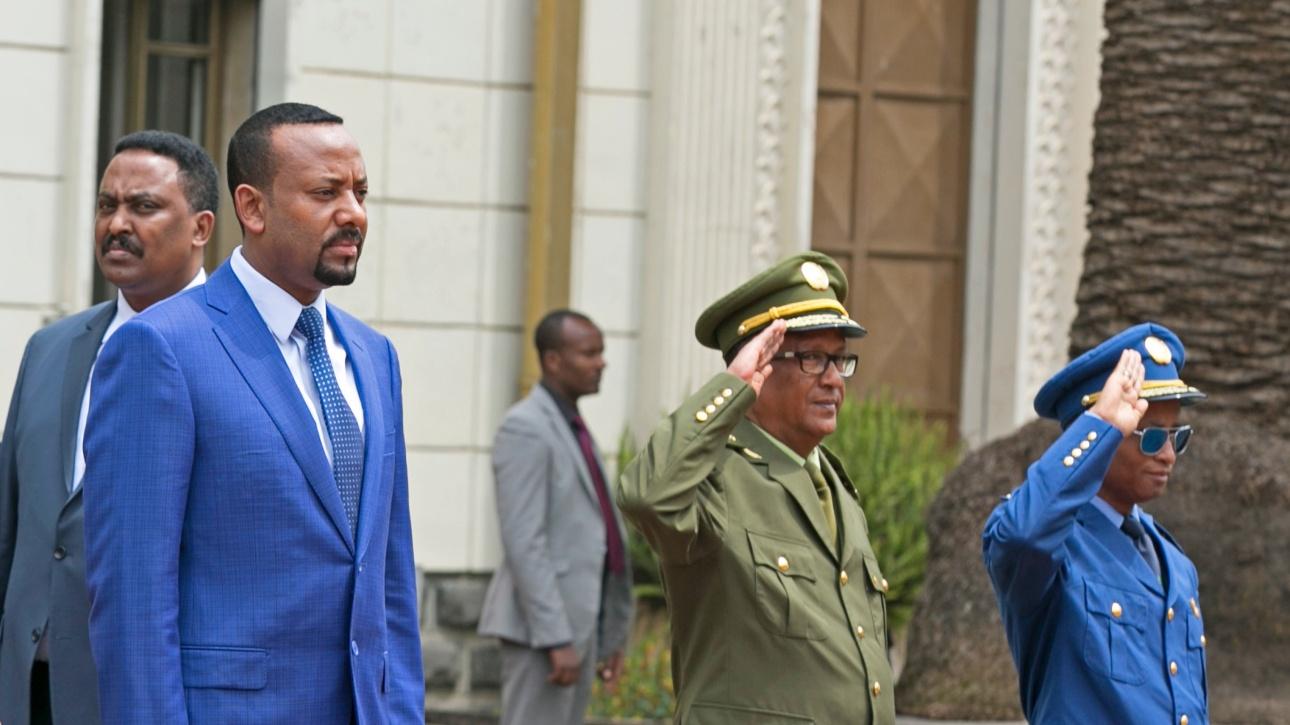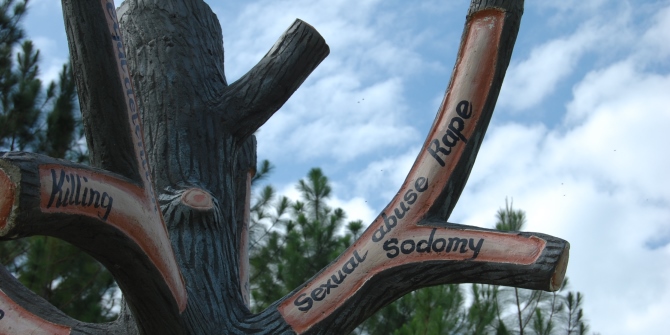Hannah Smidt examines the factors that led to breaking the cycle of violence in the 2015 Côte d’Ivoire elections.
This post is part of the African Elections series.
Since the introduction of multiparty elections in Côte d’Ivoire in 1990, voting has been accompanied by large-scale violence: 1995 to prevent elections, 2000 to claim rightful victory and 2010 to do away with an unfavourable result. This year’s presidential election is, therefore, exceptional in Ivorian electoral history. Few violent incidents occurred during the pre-electoral period. Voting took place in a peaceful atmosphere. The first post-election week passed without protest or clashes. Why does the 2015 presidential election not fit the historical pattern of electoral violence?

There are several plausible explanations.
The first explanation is non-controversial: People are tired of war. Ask a random Ivorian on the street, she will agree that people have just had enough violence: In 2002 the first civil war divided the country into a rebel-controlled North and government-held South. The population suffered from almost a decade of insecurity during the neither war nor peace stalemate. The 2010 presidential elections reignited violent conflict. An estimated number of 3000 people lost their lives in the post-election crisis. The trauma caused by the violence in that election has not yet healed: Today, a local opposition campaign manager affirms that even if his party wanted to violently contest the election, they would not be able to mobilise a large enough number of people to do so. The post-election trauma is one reason for this peaceful presidential election. Its negative side-effect is the comparably low turnout. Of the 6.3 million registered voters, only 52.86 per cent turned out to vote (turnout was above 80% in 2010).
The second explanation for electoral peace in 2015 might be that the elites of the Rassemblement des Républicains (RDR), President Alassane Ouattara’s party, had no motive to organise violence. Their coalition partner, the Parti Démocratique de Côte d’Ivoire (PDCI) – a party that is estimated to have the support of about 30 percent of the electorate – did not present a candidate. Instead Henri Konan Bédié, president of the PDCI, called upon his supporters to vote for the incumbent president. Since the government wanted to motivate PDCI supporters to turn out, a campaign of intimidation would have been counter-productive. Moreover, the opposition is internally divided and one faction called for a boycott. Violence to prevent opposition voters from voting was unnecessary to win the election. Finally, campaign resources were largely skewed in the President’s favour. Making presents is a more secure alternative for securing electoral victory than creating fear. For all these reasons Ouattara was peacefully re-elected with 83.66 percent of votes in the first round.

A third explanation for this year’s peaceful election may be a lack of motive for organising violence in the opposition camp. The main opposition party Front Populaire Ivorien (FPI) finds itself out of power since the arrest of its president Laurent Gbagbo in the violent aftermath of the 2010 presidential elections. Many of its old cadres are in prison or under house arrest. Others are still in exile, because they fear punishment upon their return. Many of the former Gbagbo associates were fired from their jobs in public administration. Overall, the FPI is in a miserable state. It had not much more to lose from the 2015 presidential election and, thus, no motive to forcefully prevent this election from taking place. Instead, the moderate faction led by Affi N’Guessan peacefully contested the presidential election, as it seemed their only chance of securing the party’s survival. They won 9.29 percent of the votes. The hardliner faction of the FPI led by Aboudramane Sangaré firmly stuck to boycotting the elections. The hardliner opposition’s capacity to derail voting, though, was arguably small. This is because of the first uncontroversial explanation for the absence of violence: Ivorians just had enough of it.
A fourth explanation for the election’s overall peaceful character might be the international attention and the presence of the UN peacekeeping mission known by its acronym UNOCI. Mediation by UNOCI and other UN, international and bilateral agencies may have succeeded in bringing at least part of the opposition into the electoral process. For example, in 2014 the UN negotiated a compromise regarding the composition of the Electoral Commission. This compromise enabled moderate FPI politicians to take part in the election preparations. Furthermore, UNOCI’s uncompromising stance on many election-related issues may have convinced opposition members that violence will not be rewarded, e.g. by forming a transitioning government. Finally, their discreet presence throughout the country may have deterred violent actions by the hardliner opposition.

Did this peaceful 2015 presidential election forever turn the page of violent electoral competition? No, because many old and some newly created grievances prevent nation-building, a pre-condition for peaceful electoral democracy. FPI hardliners think that Alassane Ouattara was illegitimately brought to power in 2010 with the help of France and UNOCI and violated the constitution by presenting himself in the 2015 election. Moreover, Ouattara is held to be the president of the Northern people and migrants, especially those of Burkina Faso, who are accused of illegally exploiting the riches of Côte d’Ivoire. Members of the opposition were arrested and faced criminal charges while loyal Ouattara forces so far have not faced any consequences for their war crimes. Public offices are predominantly filled with friends of the government (as was done by ex-president Gbagbo). Reconciliation between different ethnic constituencies of the major parties is stagnating. And still yes, this peaceful election may be a first step to consolidate ballots as a better alternative to bullets. The peaceful presidential election may have convinced more Ivorian citizens, especially the new generation, of the value of electoral democracy; a value called into question by the experience of electoral violence. This experience will reinvigorate democratic participation and help the moderate opposition to regain its strength. This peaceful election can serve as a stepping stone for the much-needed national reconciliation process.
Hannah Smidt is a researcher at the University College London (UCL).
The views expressed in this post are those of the authors and in no way reflect those of the Africa at LSE blog or the London School of Economics and Political Science.






The main reason why last week elections were quiet and peaceful is because Dicitator Ouattara has masterfully succeed in devoiding the elections of its substance. First of all he started to illegally run his campaign way before his opponents, secondly he systematically jailed all his political foes. Thirdly he made sure that the body in charge of the elections was in its pay.Fourthly his tribal militia was not disarmed and finally he manufactured a rift within all the major political parties . The reasons stated in that article are subsidiary. His so called landslide victory was marred by an historical low turnout. His legitimacy as head of state is questionable.